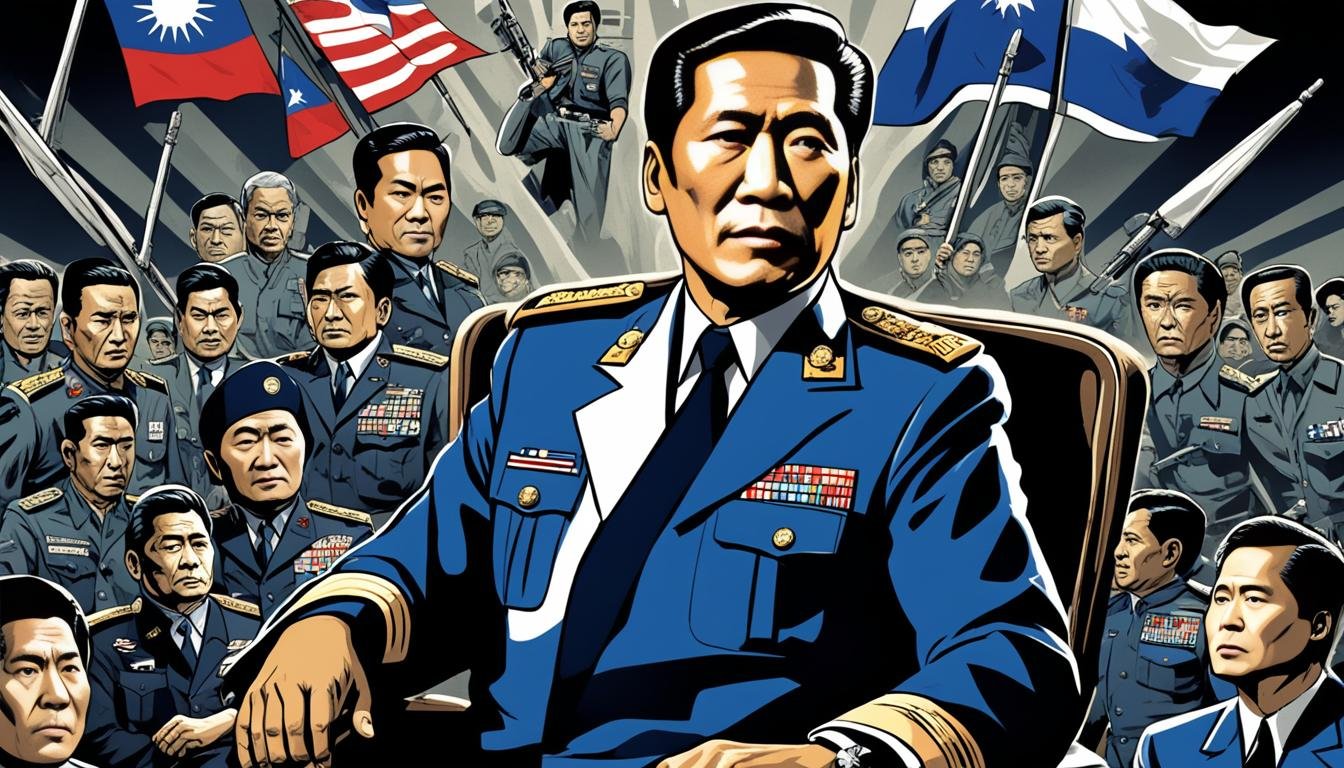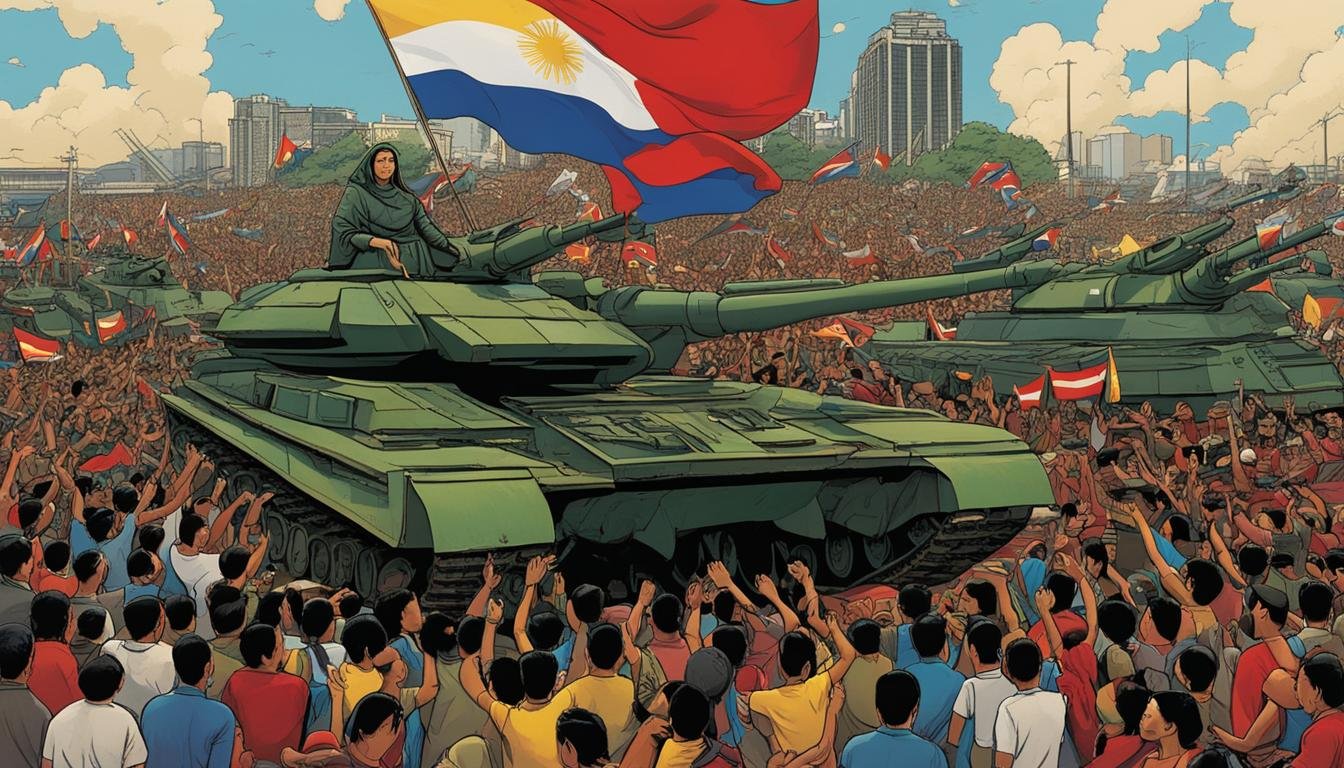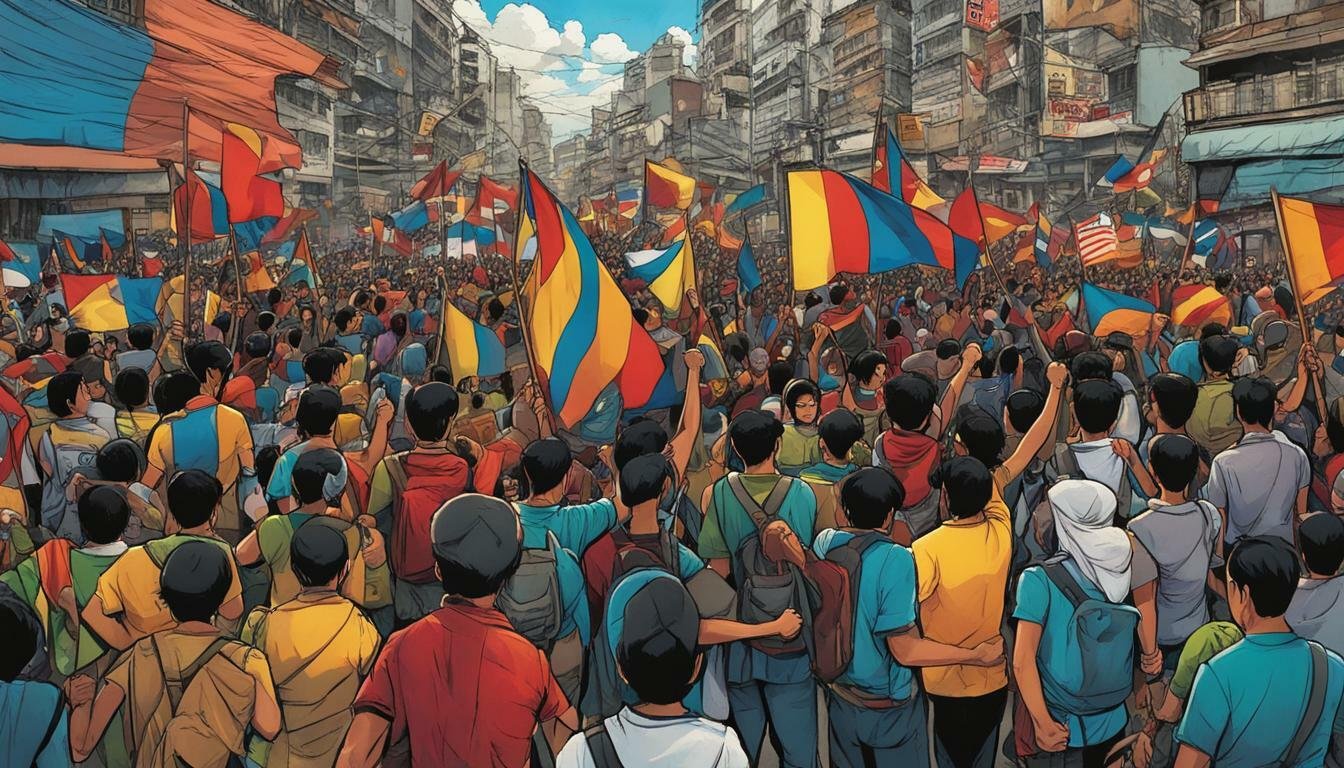The period spanning from the declaration of Martial Law in 1972 to the ouster of Ferdinand E. Marcos in 1986 represents one of the most transformative, controversial, and debated chapters in Philippine history. For nearly two decades, Marcos held an unprecedented grip on power, fundamentally altering the nation’s political landscape, economy, and social fabric. This…
Tag: Human rights violations
The People Power Revolution Topples Dictator Marcos
The People Power Revolution, also known as the EDSA Revolution, stands as a watershed moment in Philippine history. In February 1986, a massive, non-violent civilian uprising, supported by military defectors and religious leaders, brought an end to the authoritarian rule of Ferdinand Marcos, who had governed the Philippines for over two decades, much of it…
Philippines’ People Power Revolution
The Philippines’ People Power Revolution, also globally known as the EDSA Revolution, stands as a pivotal moment in modern Philippine History. This monumental uprising, which primarily unfolded over four historic days in February 1986, saw millions of Filipinos take to the streets in a remarkable display of unity and defiance. It was a largely Nonviolent…
ISSP Philippines: Pioneering Sustainability Solutions
The Philippine History narrative is complex, marked by struggles for sovereignty, democratic aspirations, periods of profound social upheaval, and recurring challenges related to governance, human rights, and social justice. Within this intricate tapestry, recent events have cast a long shadow, demanding rigorous documentation and analysis. The presidency of Rodrigo Duterte (2016-2022) and his administration’s flagship…
The Impact of Martial Law on Philippine National Identity
The Philippines, an archipelago brimming with diverse cultures and a history marked by resilience, carries within its collective psyche the deep scars and complex legacies of Martial Law. Declared on September 21, 1972, through Proclamation 1081, the period under President Ferdinand Marcos dramatically reshaped the nation’s trajectory. Beyond the political and economic shifts, the Marcos…
The Impact of Martial Law on Philippine Social Justice
Martial Law had a huge impact on the Philippines, especially on Social Justice. In 1972, Martial Law was declared, changing the country’s history. It led to many arrests and detentions. Over 50,000 people were arrested and detained from 1972 to 1975. This shows how the regime ignored human rights and Social Justice. The Marcos regime…
The Impact of Martial Law on Philippine Education
In 1972, Ferdinand E. Marcos declared Martial Law in the Philippines. This had a big impact on education, making it harder for students to think freely. It also made it tough for them to learn the truth about this time in history. Today, social media is full of fake news, especially about Martial Law. The…
The Impact of Martial Law on Filipino Culture
In September 1972, Ferdinand Marcos declared martial law. This had a huge impact on Filipino culture. It led to many human rights abuses, like arrests, torture, and killings. This period changed how the government kept order. It also affected the economy and people’s lives. Martial law made crime rates drop but also banned strikes, changing…
The Declaration of Martial Law: A Turning Point in Philippine History
The Philippines declared Martial Law on September 23, 1972. This event started a 14-year rule by President Ferdinand Marcos. It deeply changed the country’s politics, economy, and society. To learn more, visit Philippine History and explore Martial Law’s complexities. The economy suffered a lot during Martial Law. Foreign debt rose from $278 million in 1965…
Why Was Marcos Sr. Viewed as Bad? Insights & Acts.
Did you know that Ferdinand Marcos Sr., the former president of the Philippines, is widely viewed as a bad leader? Marcos Sr.’s time as president was marked by bad governance and authoritarian rule. His regime saw human rights abuses and a lot of corruption. The country also suffered from economic plunder. Many believe Marcos Sr.’s…









